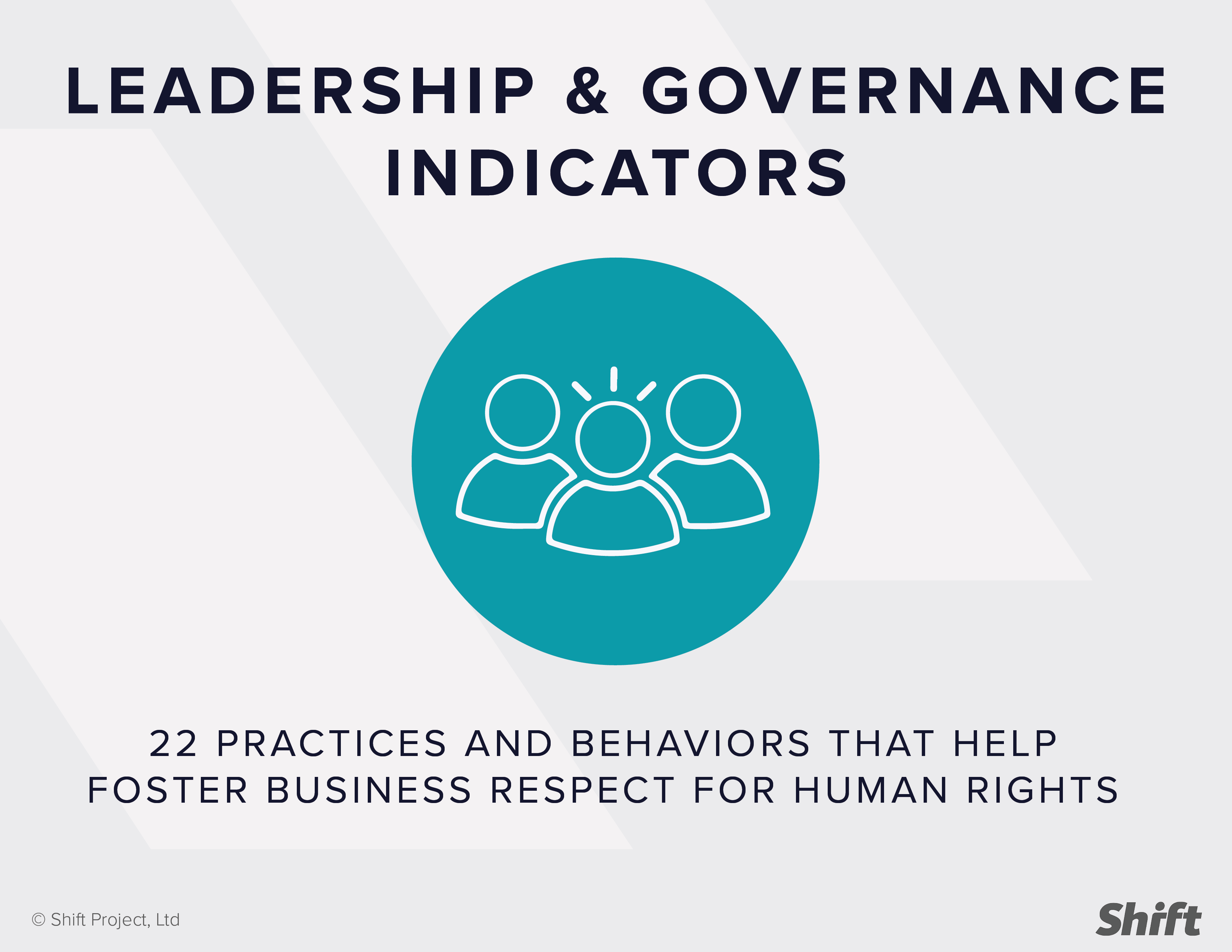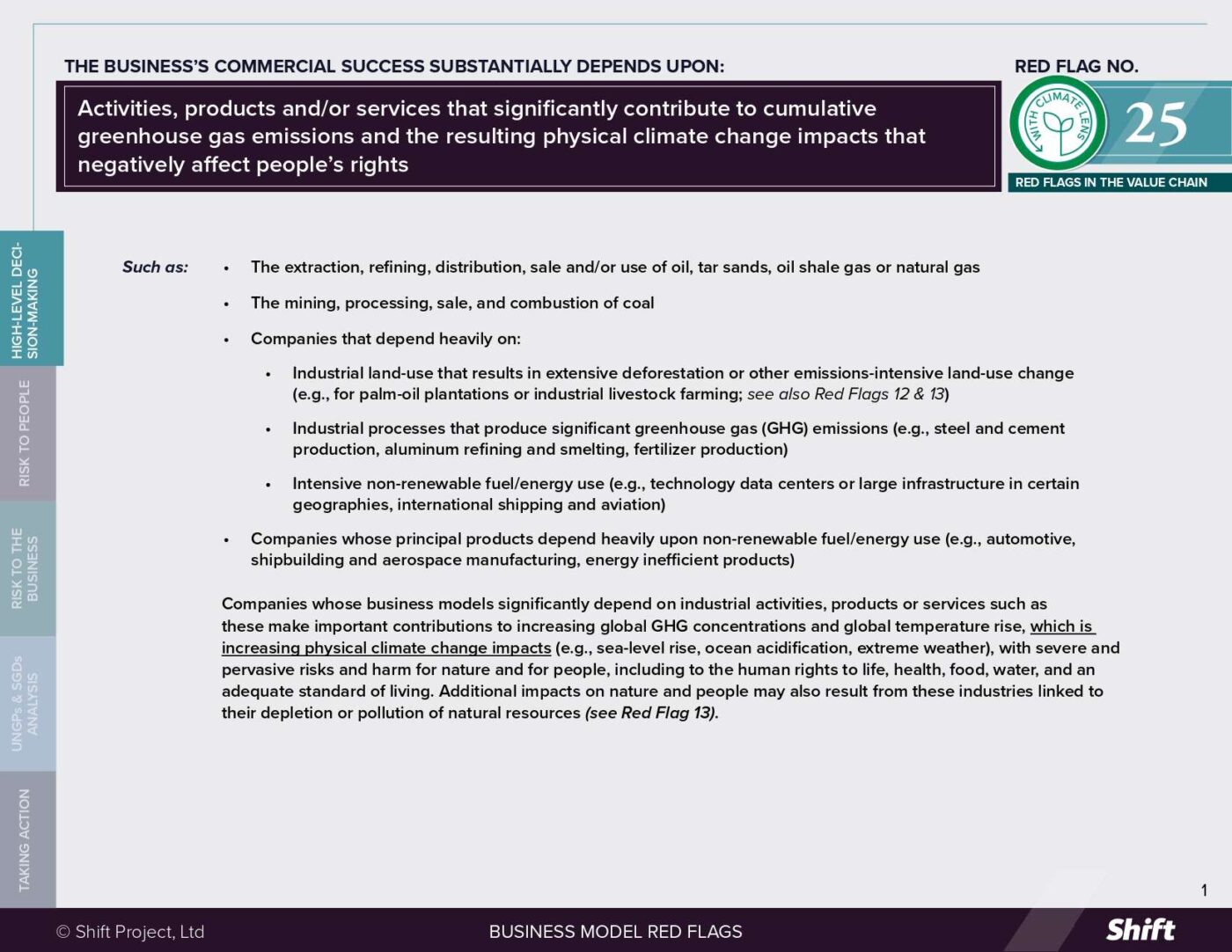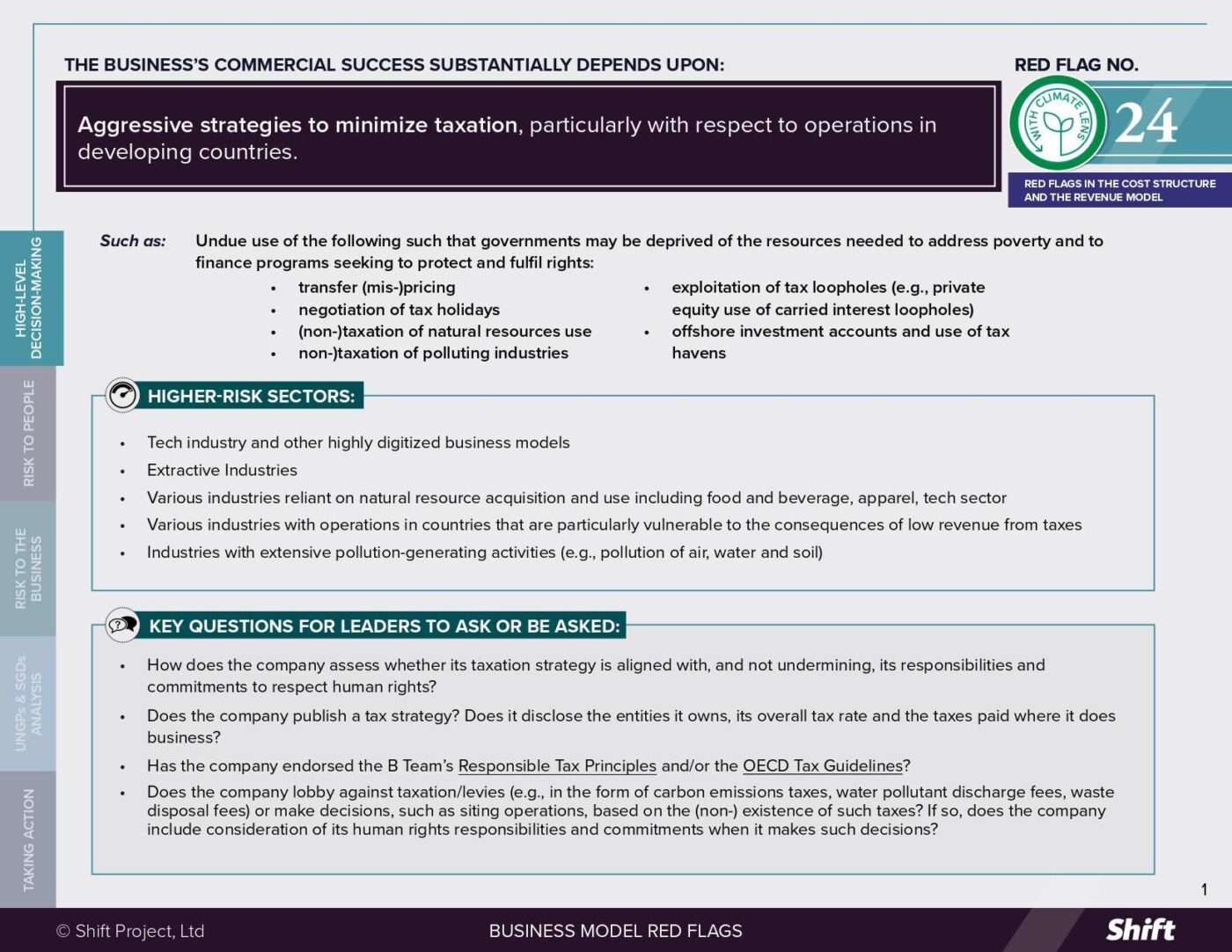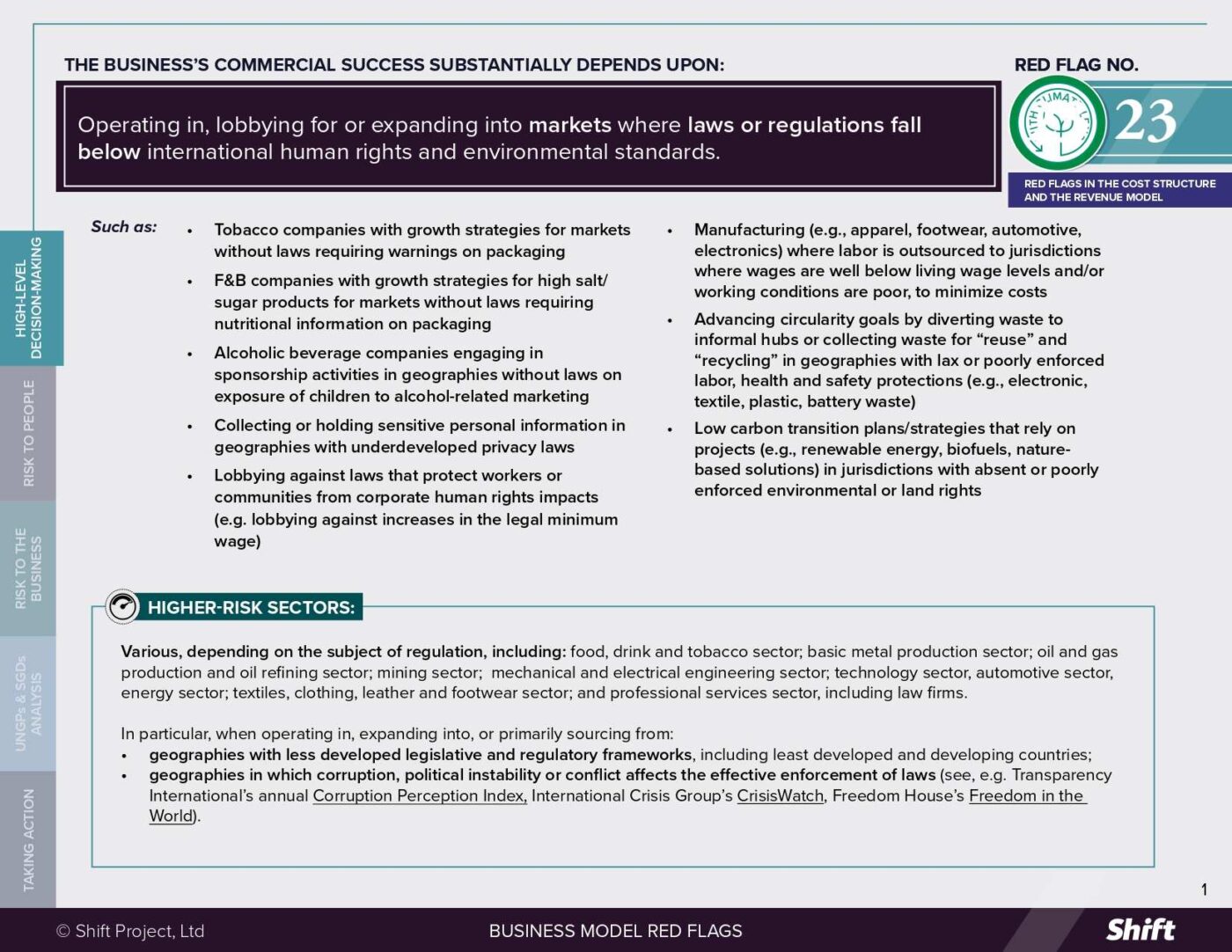OVERVIEW
This resource provides a menu of indicators of leadership and governance that can help to evaluate a company’s progress towards building a rights-respecting culture. It is not necessary to use all the indicators. They are intended as a menu from which organizations can draw as appropriate to their needs and contexts.
The primary intended users of the resource are:
- Business leaders seeking to assess the strengths and weaknesses of their company leadership, governance and culture with regard to respect for human rights.
- Investors and civil society organizations seeking to strengthen their analysis, strategies and engagement with companies regarding progress towards respect for human rights.
Connecting to Culture
Indicators of leadership and governance typically focus on formal systems – codes of conduct, organizational structures, roles, responsibilities and incentives. Evidence of these can signal how things should happen in an organization. But they miss the profound influence that the actions of governing bodies and senior leaders’ can have on what actually happens, through the day-to-day decisions and behaviours of people across the organization that determine its impact employees, workers, communities and consumers.
The indicators in this resource are grounded in four features of a corporate culture that are central to respect for human rights:
- Authenticity such that the organization acts in a manner consistent with publicly asserted commitments to respect human rights, including when faced with inevitable tensions between respect for human rights and other business goals.
- Accountability such that respect for human rights is embraced as the responsibility of people in every part of the business, and key staff are empowered and motivated to embed respect for human rights across the company.
- Empathy such that everyone in the organization is motivated to know and care about whether and how it might be involved with harm to the human rights of people, including to remote individuals and communities.
- Organizational Learning such that everyone seeks out and embraces new insights about human rights risks and makes an effort to learn from mistakes as well as successes.

 Business Model Red Flags
Business Model Red Flags  Tool for Indicator Design
Tool for Indicator Design 



